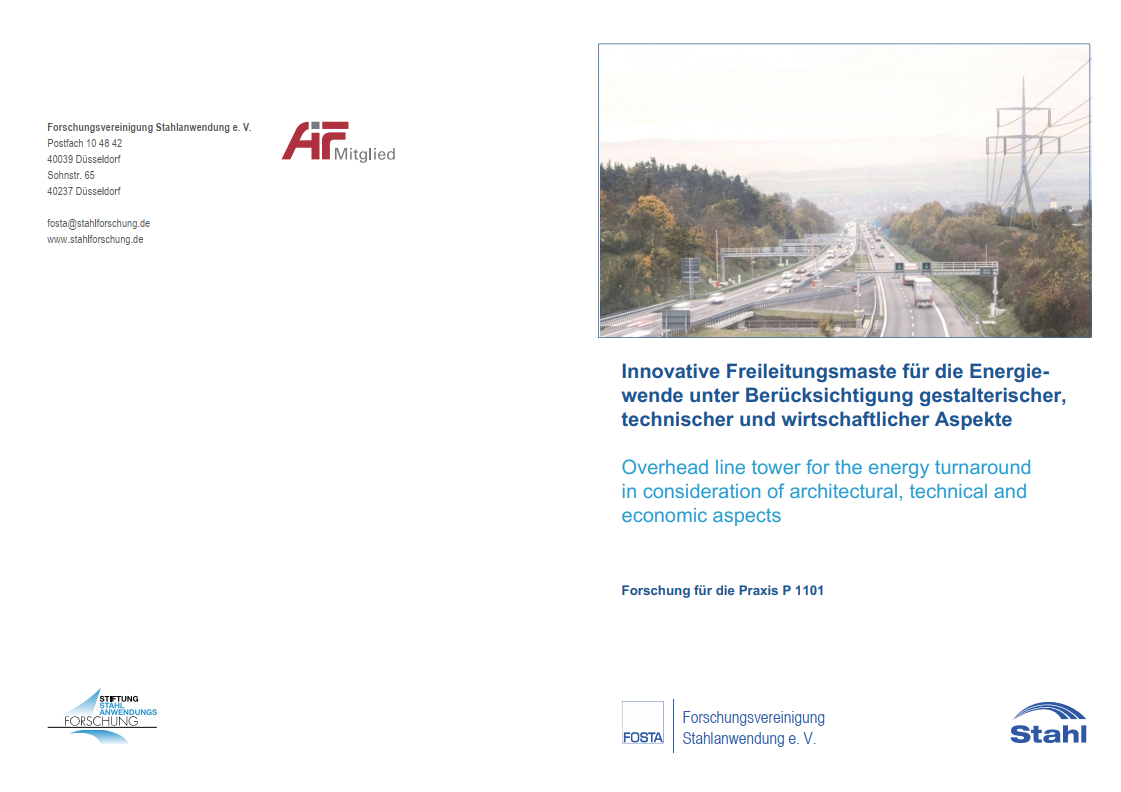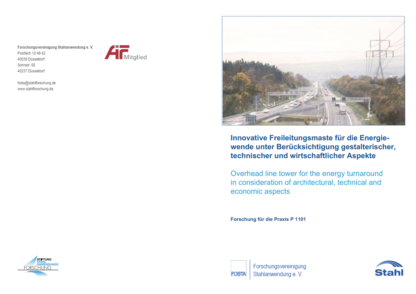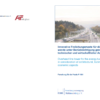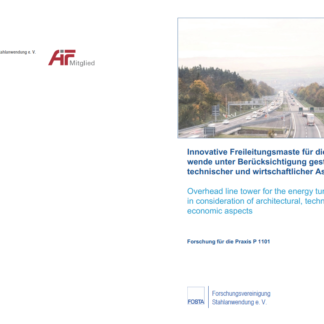Description
P 1101 – Overhead line tower for the energy turnaround in consideration of architectural, technical and economic aspects
The politically driven energy turnaround requires numerous expansion and grid strengthening measures. Steel overhead line masts are still almost exclusively lattice masts, which were already controllable 100 years ago in terms of planning, production technology and calculation. Today, however, these are often considered a visual disturbance or an impairment of the aesthetics of the landscape and the townscape.
This research project aims to improve the image of overhead lines and make them a necessary and accepted part of our industrial society. The aim is to develop a new type of overhead line mast made of steel which, in addition to meeting the highest technical and economic requirements, also meets the requirements of the energy turnaround in its design. Therefore, the work has been carried out by engineers and architects in an interdisciplinary way.
In the present research report, the basics of overhead line construction as well as electrotechnical and mechanical requirements for the development of the mast construction are presented first. Based on this, various developed optimisation approaches for the lattice mast construction are presented. For the development of the innovative form for the overhead line mast, four variants of the overhead line mast designs are explained and the detailed investigations in the form of FE analyses for the favoured variant are presented. The experimental approach is then used to analyse the load-bearing behaviour of the new type of tube-in-tube press connection. The entire development work is incorporated into the economic efficiency analysis of the innovative design with consideration of series production. Within the scope of the investigations, an attractive and economical alternative to the previous lattice mast designs was created. The goal of the research project has been achieved.
Main content only available in german language.
Published in:
March 2020




